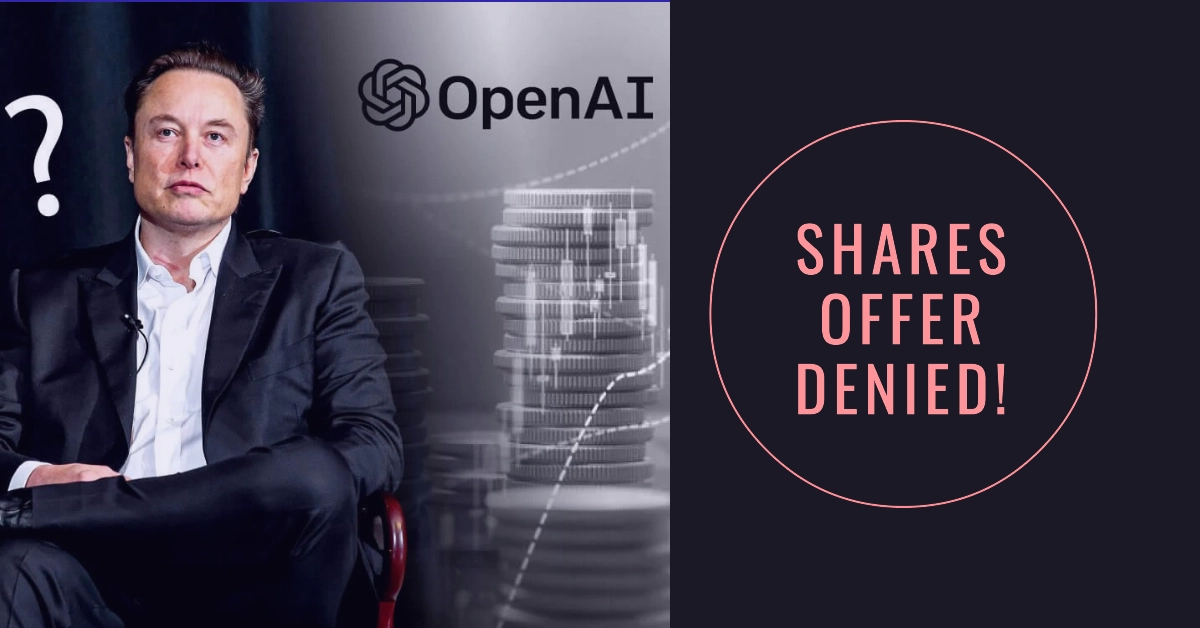Elon Musk, a visionary entrepreneur and co-founder of OpenAI, made the surprising decision to decline an offer of shares in the artificial intelligence research lab. This move raises questions about Musk’s motivations and his changing relationship with the company he helped create.
Let us delve into the potential reasons behind this choice, exploring his expressed concerns about AI safety, conflicts of interest, and shifting priorities.
Back Story
Elon Musk has long been a vocal advocate for responsible development of artificial intelligence. He founded OpenAI in 2015 as a non-profit to ensure AI benefits humanity. However, his relationship with the organization has changed significantly.
Musk left OpenAI’s board in 2018, citing potential conflicts with Tesla’s AI work. Recently, he refused an offer of OpenAI shares, making his motivations a subject of intense speculation.
Concerns About AI Safety
Elon Musk has repeatedly warned about the existential risks posed by unchecked AI development. He may have become concerned that OpenAI’s direction deviated from his original vision of prioritizing AI safety.
With AI models becoming increasingly sophisticated, Musk may have felt that additional safeguards were needed. He might believe that being closely involved could influence OpenAI’s decisions in a way that aligns more directly with his focus on mitigating AI-related risks.
Potential Conflicts of Interest
As CEO of Tesla, a company heavily invested in self-driving technology, Musk likely encountered a clear conflict of interest with OpenAI. Being a shareholder in a company actively researching similar AI domains presented complications.
To maintain impartiality and avoid ethical dilemmas, Musk could have reasoned that distancing himself from OpenAI financially was necessary.
Shifting Focus and Priorities
Elon Musk is known for juggling multiple large-scale initiatives simultaneously. In addition to Tesla, he leads SpaceX, Neuralink, and other ventures.
His priorities may have shifted, leading him to believe that his time and resources could be better used elsewhere. Refusing shares could reflect a decreased focus on OpenAI relative to his other ambitious projects.
OpenAI’s Transition to a For-Profit Model
In 2019, OpenAI established a for-profit arm to attract more investment, marking a change from its non-profit roots. This shift towards commercialization potentially conflicted with Musk’s original vision for OpenAI as a force for good, focused on ensuring AI’s societal benefits.
The transition may have created misalignment with Musk’s goals for the organization, causing him to disinvest.
Speculation and Controversy
Musk’s decision has stirred both speculation and controversy. Some view his refusal as a lack of faith in OpenAI’s future trajectory.
Others, however, see it as principled, perhaps fueled by Musk’s genuine concerns about the responsible development and use of increasingly powerful AI systems.
Overall Thoughts
Ultimately, the exact reasons behind Elon Musk’s denial of OpenAI shares remain elusive. It’s possible that a combination of factors, including AI safety concerns, conflicts of interest, shifting priorities, and disagreement with OpenAI’s for-profit transition, came into play.
Despite the uncertainty, his decision highlights the ongoing dialogue about the ethical development and application of artificial intelligence – a discussion in which Musk remains a prominent voice.
